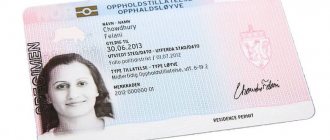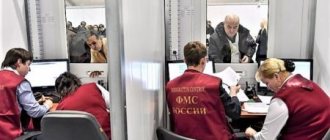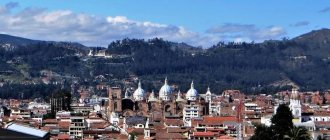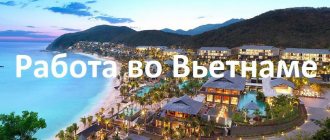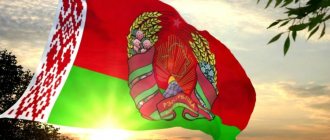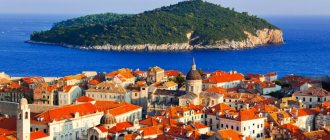For many years, Norway has been a leader among countries with a high standard of living. The Kingdom is one of the safest and most comfortable states for living. However, to change your place of residence, you need to know how to move to Norway legally.
Norway is an amazing country that every traveler dreams of visiting.
Positive aspects of life in Norway for Russians
When choosing a country for immigration, many Russians give preference to Norway.
The Kingdom offers its citizens security, quality education and the opportunity to travel within the Schengen area.
Social Security
Unemployment in the country rarely exceeds 3%. In case of dismissal, a person has the right to receive benefits that allow him to pay for utilities and food. Special payments are provided for families with children. A large number of social programs for various segments of the population prevent the emergence of poverty.
Safety
Norway is one of the ten safest European countries. Local residents allow their children to attend school and classes on their own. However, after large numbers of migrants from disadvantaged countries moved into the country, some areas of large cities have become less safe.
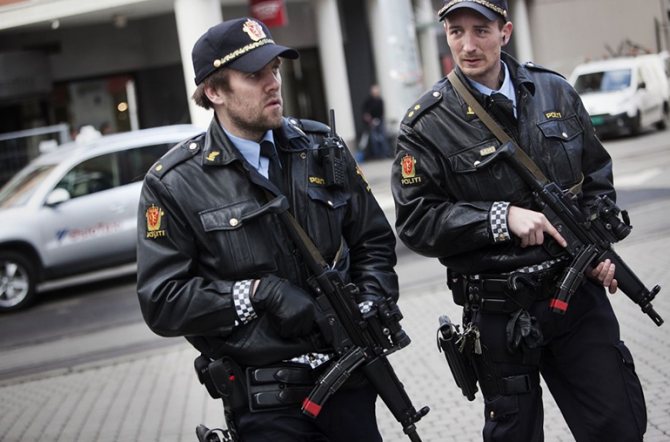
Norway is a safe country.
High level of education
Kingdom diplomas allow you to find a job anywhere in the world. A graduate who speaks Norwegian has the right to stay in Norway if he manages to find a job before graduation.
Even an international student can count on receiving a scholarship or grant.
Visa-free entry into the Schengen area
Norway is not a member of the European Union. However, the state has signed an agreement allowing citizens of the kingdom to move freely within the Schengen area.
Ecology
The authorities and residents of the country care about the ecology of the kingdom. Food and drinking water in this state are considered to be of the highest quality in Europe. Norwegians prefer to use electric cars, which can be purchased with government subsidies. The most favorable ecology is in regions with low population density.
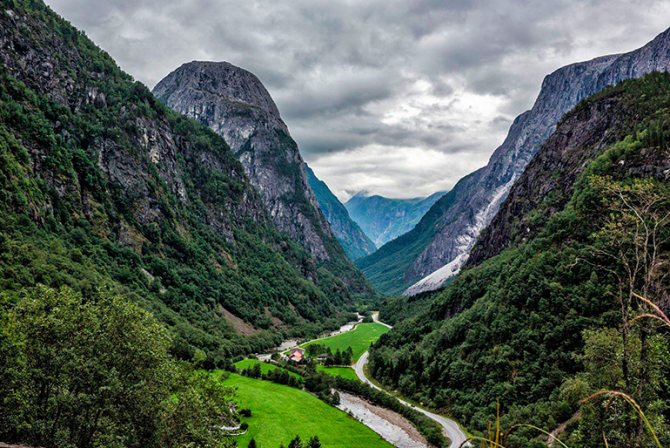
The ecology in Norway is almost ideal.
General knowledge of English
Even Norwegians without higher education are fluent in English, which is common throughout the world. However, this circumstance does not exempt the immigrant from learning the local language. Speaking Norwegian increases the likelihood of successful employment.
Russian-speaking community
About 20 thousand Russians live in the country. Most immigrants from the Russian Federation are women who married Norwegian citizens. Russians live in almost all regions of the kingdom, but the largest community is in the capital. Many Russians live in Trondheim, Bergen and Stavanger.
Pros and cons of emigrating to Norway
Norway is a country that has a lot of positive aspects, but, like any other state, it also has disadvantages.
Pros of the country:
- Ecology. Norway has long occupied the first place in the ranking of countries with a favorable environment. The country's policy is actively and constantly working to improve the environment. The main slogan of the country is “Clean not where they clean, but where they don’t litter,” so the population has developed a good habit of cleaning up after themselves everywhere. Each house has 4 garbage containers (glass, metal, plastic, paper) and responsible Norwegians will never throw all their garbage into one container. Garbage containers are located not only in the city, but also along country roads. And the cleanliness of Norwegian public toilets is already legendary. Competent policy and impeccable mentality are the key to good ecology.
- Water. Norwegian water is the pride of the country. It is very pure and does not require filtration. You can safely drink water even from the tap. All water for sale is locally produced, since the quality does not require the import of imported water, but export is carried out on a huge scale.
- Equality. There is no class inequality in Norway. Most of the population are people with average earnings.
- Low crime. Security is a huge plus for any country and Norway is probably one of the safest countries in the world. There is practically no corruption in the country.
- Standard of living. Norway is a country with a high standard of living, second only to Switzerland and Australia. Life in Norway compares favorably with other European countries. There is a stable increase in wages and economic development.
- Healthy lifestyle The state is actively promoting a healthy lifestyle. Smoking and drinking alcoholic beverages are prohibited in public places and residents of the country strictly observe these laws. There are many grounds and facilities for sports.
- Beautiful nature. No one can or will want to dispute this fact. The nature of Norway is a real masterpiece, shaped by the harsh northern climate. The symbol of the country is the legendary Norwegian fjords, which are under the protection of UNESCO. Norway has more than a thousand fjords, many of which are framed by majestic cliffs and waterfalls. Travelers from all over the world come to admire these sights. Pine forests, tundras rich in northern berries, clean lakes with plenty of fish, beautiful waterfalls - all this is the national wealth of the country.
- Attitude towards children. Children are our future and our reflection. Norway understands this very well. It is not customary here to scold children, especially in public. From early childhood they are hardened by taking them for walks in any weather and sending their children to different sports groups. Children are also taught responsibility from childhood. No one drives children to and from school.
- High wages and low unemployment. On average Norwegian salaries you can not only live comfortably, but also travel regularly.
- Free education. Students from all over the world seek free and high-quality education in Norway. Education at universities in the country is conducted in English or Norwegian. The government provides loans to those in need to cover living expenses. If a student shows great success in his studies, the university itself pays off the student’s debt. Universities also provide scholarships, the size of which allows them to cover all the expenses of future specialists.
- Business. Government policy makes it easy to open and grow your business.
- Parking. Despite the huge number of cars, there are no roadsides or yards filled with cars. Because there is a huge fine for parking in the wrong place. Specially equipped parking spaces are paid and well guarded.
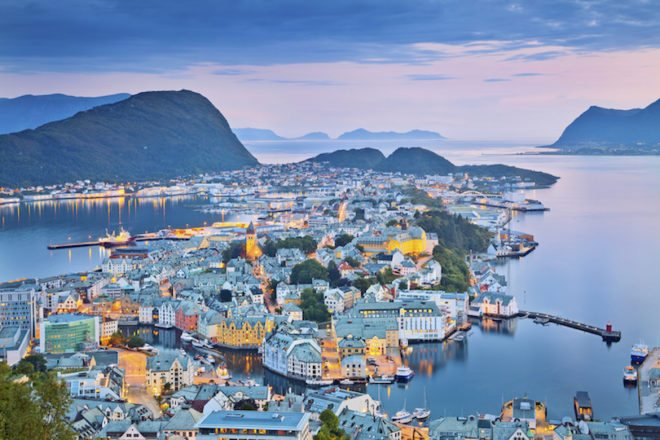
Cons of the country:
- Climate. The cold and damp climate of Norway is not suitable for those who like bright sun and heat. Cold winter with short daylight hours can cause melancholy and depression in an unaccustomed person. Many immigrants from the southern region of Russia have a difficult and long acclimatization process. In spring, summer and autumn there are tedious, lingering rains, enveloping the country in a gray shroud.
- Job. High salaries in the country are good, but it can be very difficult for a foreigner to find a job. At labor exchanges, up to hundreds of applicants can be considered even for a vacancy as a cleaner. To get a more prestigious job, you need to either have familiar bosses or other acquaintances who can recommend you.
- Dear life. No one will be surprised by how expensive life is in Europe, and Norway is no exception. Everything is expensive here, from food to real estate. Renting an apartment will cost 25-30 euros per day. You won’t be able to get around by taxi here either; the fee for 1 km is 1.5 euros. A ticket for public transport costs 4 euros. The most profitable way to get around the city is a bicycle, which a huge number of residents ride in order to save money and preserve the environment. The only thing that is relatively inexpensive is Moscow-Oslo tickets, about 11 thousand rubles.
- High taxes. The higher the salary, the higher the taxes. High taxes maintain a high standard of living in the country. The minimum tax is 34%, the maximum reaches 80%. The tax is also imposed on the attributes of a luxurious life: yachts, expensive cars, jewelry, paintings by famous artists.
- Sunday. The last day of the week is a day off throughout the country. Nothing works, including grocery stores, and this creates certain difficulties.
- Choice of clothes. Clothing stores have a small selection, and what they have is very expensive. It is difficult to choose clothes for a standard Russian woman with voluminous body parts and short stature. The clothes are designed for tall women with a masculine figure.
Norway ranks 5th in the ranking of the most expensive countries in the world.
Standard of living in the country
The standard of living in the kingdom is considered one of the highest in the world. However, the costs here are higher than in other states.
The most in-demand professions
The demand for a particular profession depends on the city and can change annually. In 2019-2020 the country experienced a shortage of:
- medical workers;
- programmers;
- builders;
- architects;
- engineers.

The country is experiencing a shortage of medical workers.
Oil and gas specialists are almost always in demand. Wealthy families accept nannies with knowledge of one or another foreign language. Immigrants with a diploma in teaching or psychology can get a job in social services. However, working with children and the elderly requires a good command of the Norwegian language.
average salary
The average salary in Norway is 43.8 thousand kroner per month (about 280 thousand rubles). This kind of income is more common in the construction industry. Workers in the mining and energy industries, economists, engineers and programmers are paid 50-65 thousand crowns. Senior managers receive from 77 thousand crowns. The lowest wages are for workers in the service sector - salespeople, administrators in hotels (no more than 30 thousand crowns). Hourly wages are accepted in the kingdom.
Housing and food
The cost of renting housing (without paying for utilities) depends on the city and region. Apartments in the capital are considered the most expensive. For a 30 m² studio on the outskirts of the city you need to pay at least 10 thousand CZK per month. In the center of Oslo, the same apartment will cost from 13 thousand crowns.
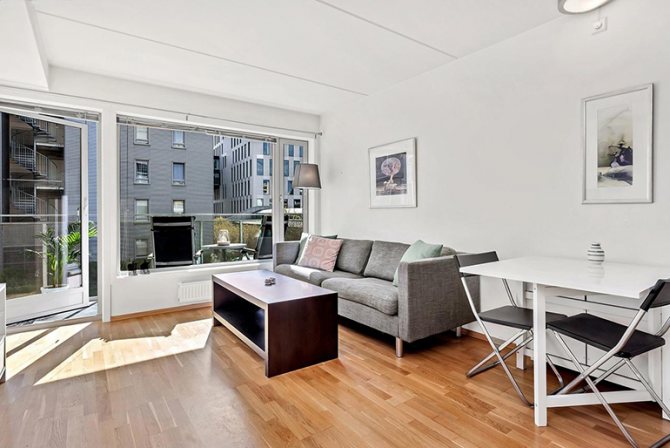
The cost of rental housing depends on the city and region.
The cheapest products include potatoes (about 20 CZK per 1 kg) and milk (17 CZK per 1 liter). The middle segment includes tomatoes, rice, wheat flour (from 25 to 40 CZK per 1 kg). Among the most expensive products are meat and alcohol (from 120 to 140 CZK per liter or kilogram).
Taxation
Both nationals and migrants with residence permit and permanent residence status are required to pay taxes. Employees and entrepreneurs contribute a minimum of 23% of their real income. The super rich pay up to 50-80% of profits. It is also necessary to pay a social tax in the amount of 8.2% of wages. Some categories of citizens are provided with benefits.
The kingdom has a progressive taxation scale. If a person earned less than 164.1 kroons in a year, he is exempt from payments.
Social factors
In Norway there is virtually no division between rich and poor. The monthly living wage is 8 thousand crowns (about 66 thousand rubles) in the capital and 6 thousand crowns (about 50 thousand rubles) in other cities. A resident of the kingdom with any status can take advantage of benefits and social programs. Before applying for help, he must have lived in Norway for at least 2 years and be a taxpayer of this state.
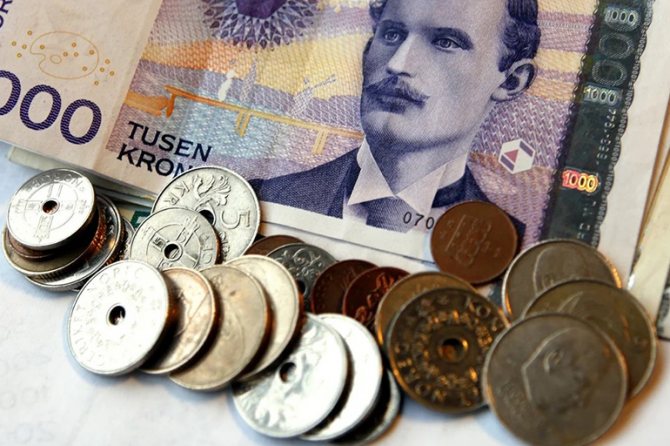
Residents of the kingdom can take advantage of the benefits.
Pension provision
Both men and women in Norway retire at age 67. The minimum old-age payment in the kingdom in 2021 is 93.6 thousand crowns per year. It is possible to receive allowances for dependent spouses and minor children.
Climate
The kingdom has a temperate but humid climate. The regions of Finnmark and Troms are considered the coldest, where in the winter months the thermometer can drop to -40ºC. In Oslo and other southern cities in January the temperature stays at +4…+7ºС. Average July indicators are +17…+20ºС.
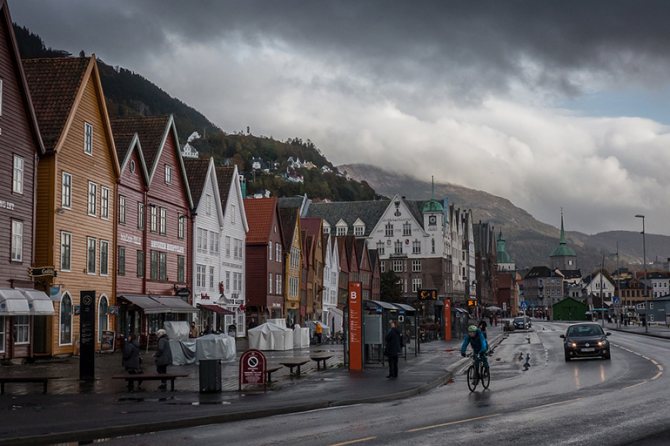
Norway has a temperate and humid climate.
Features of the Norwegian climate include the polar night in the northern regions of the state, which lasts 6 months. During this period, people are forced to spend a lot of time indoors and take vitamins.
Cost of living
A Norwegian family with 1 child spends from 25 to 30 thousand kroner per month, paying for:
- Housing rent (mortgage) and utilities.
- Insurance (apartment, car, life).
- Food.
- Traveling on public transport or maintaining a car.
Norwegians spend less on clothing and leisure than residents of other European countries.
The most in-demand professions in Norway
The most relevant area in which migrants can work is the oil and gas industry. There are always vacancies in this area, and it is not difficult for a foreigner to find a job. The list of in-demand professions also includes:
See also: Temporary and permanent registration - risks for the owner
- doctors;
- builders;
- programmers;
- engineers;
- architects.
The Norwegian labor market is highly competitive, making it difficult even for a general worker to get the desired position.
Methods of emigration to Norway from Russia for permanent residence
The choice of emigration method depends on financial capabilities, marital status and some other factors.
Employment
You can move to Norway with your family under the labor immigration program. However, for this you need to have specialist status and master a profession in demand in the country. In some cases, immigration is possible for seasonal workers and trainees undergoing internships.

Work in Norway attracts tens of thousands of migrants to this country every year.
It is advisable to find a job in the kingdom while in your homeland, and not search after moving.
Business
To open your own business in Norway, you must present a certificate of income. The authorized capital upon registration of a company is at least 130 thousand crowns. The manager of the organization must be a Norwegian citizen. To make this difficult task easier, a foreigner can buy a ready-made business.
Education
A student at a Norwegian educational institution has the right to obtain permanent residence status. This can be not only a university, but also a college and a gymnasium. Documents are submitted from December to March (depending on the educational institution). Classes begin at the end of summer.
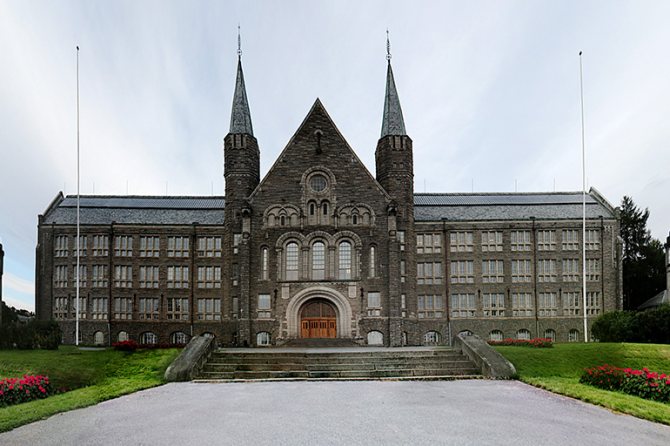
A student of an educational institution can obtain permanent residence status.
Government institutions are free for both local residents and foreigners. However, the student must pay for food, current expenses, and rented housing in the absence of a dormitory on his own.
Marriage
Marriage is one of the most common ways to move to Norway. However, a fictitious alliance should not be concluded. A family in which one of the spouses is a foreigner is under the control of the migration service. The birth of a joint child will relieve the immigrant from suspicion. The kingdom recognizes homosexual and unregistered unions.
Family reunion
Close relatives of a Norwegian citizen can use this method:
- Parents, grandparents. Applications from applicants over 60 years of age are considered. An applicant for permanent residence must not have relatives in his home country.
- Spouses. An applicant who was previously legally married provides a document certifying the dissolution of the union.
- Children. The applicant may be an adult or under 18 years of age. Adopted children move if they were legally adopted. When the father and mother are divorced and live in different countries, the minor immigrant provides consent to the move from the other parent.
- Brothers and sisters. The applicant must be under 18 years of age and not have close relatives or guardians in their home country.

The family reunification procedure is relevant for many emigrants.
Political asylum or refugee
To become a refugee in the kingdom, you must independently get to the Norwegian border and request status. The application is considered for no more than 2 months. Every year, migration authorities reject about 50% of applications.
If a person is recognized as a refugee, the status is granted for 5 years. Migration services then monitor the political, economic, etc. situation in the immigrant’s homeland. If there is no threat to life and health, the foreigner is deprived of refugee status and is offered to return to his or her country. A person who has managed to integrate into Norwegian society will be offered permanent residence with the prospect of obtaining citizenship.
A similar procedure awaits an immigrant who has requested political asylum.
However, in order to achieve this goal, the foreigner must provide documentary evidence of persecution in his home country.
Buying a property
Citizens of other countries can buy houses and apartments in the kingdom on the same basis as local residents. But the acquisition of real estate is not the basis for obtaining a residence permit or permanent residence permit. A foreigner is only entitled to a multiple-entry visa.

Purchasing real estate is not the basis for obtaining a residence permit or permanent residence permit.
Residency for special merits
Among foreigners eligible to apply for permanent residence:
- athletes (multiple Olympic medalists);
- large entrepreneurs;
- politicians;
- world-famous scientists and some other categories.
The status is issued based on a decision of the Norwegian government. In this case, the foreigner is not required to comply with additional conditions.
How can a Russian citizen obtain a residence permit in Norway?
How to emigrate to Norway from Russia? Firstly, it is permissible to immigrate to a monarchical state by asking for asylum there. However, now the Northern European power grants refugee status only in special circumstances.
Secondly, immigration to Norway can begin by requesting a residence permit. They come in 3 types:
- with the right to employment;
- permanent;
- temporary.
These documents can be issued by:
- single parents over 60 years old who have children living in a Scandinavian country;
- spouses applying for family reunification;
- citizens traveling to the kingdom to get married;
- students enrolled in local educational institutions.
Moving stages
Regardless of the chosen immigration method, a foreigner goes through the following stages:
- Applying for a visa through the Norwegian embassy. If the institution is located far from the applicant’s place of residence, you can use the services of the VFS Global visa center. The applicant will be notified by email of a negative or positive decision.
- Entry to Norway after obtaining a visa.
- Registration at the police station at your place of residence. The procedure must be completed within 7 days after arrival. A foreigner is issued a temporary residence permit (TRP) or permanent residence permit (PRP).
- Submitting an application for permanent residence status. In most cases, the application is submitted after 3 years of permanent residence in the country.
- Submitting an application for citizenship. You can apply for citizenship after 7 years of permanent residence in the kingdom. But for certain categories of immigrants this period will be reduced.
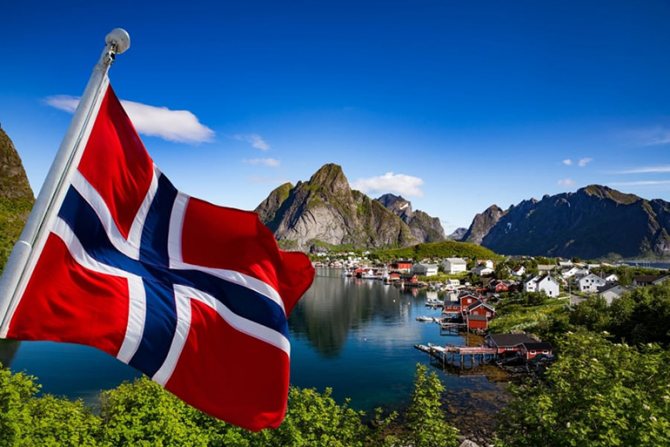
The foreigner applies for a visa and enters Norway.
Work in Norway
How to move to Spain for permanent residence from Russia
Labor in this country is very well paid, and people who are temporarily not working due to illness, due to a move to a new place or retirement are provided with generous social benefits.
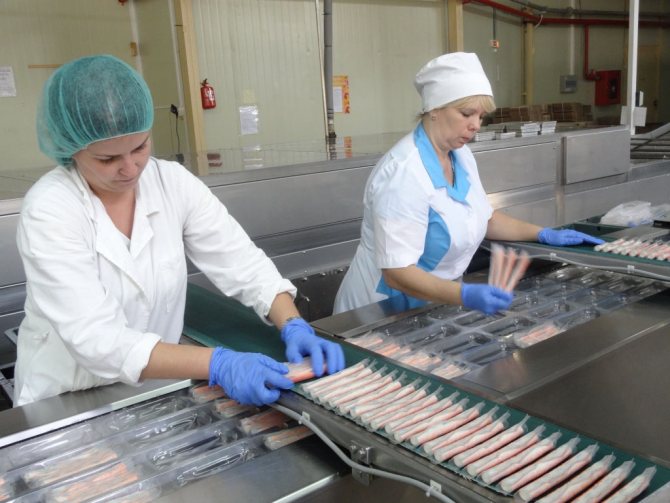
Employment in Norway
Employment in Norway involves confirming your qualifications and then obtaining permission to work. But getting a job here is not so easy. To beat the competition, the applicant must either demonstrate excellent professional skills or agree to do work that neither locals nor European immigrants are willing to take on. Many, when figuring out how to go to Norway for permanent residence from Russia, settle on the last option. Looking forward to more favorable conditions in the future.
It is impossible not to mention the advantages available to a foreigner who has found a job in Norway. Even if he loses his place before the residence permit expires, he will be given the opportunity to find a new place of work and stay in the country at least until the expiration of the residence permit.
Rules for obtaining a work visa
To apply for a work visa, an immigrant must submit a package of documents to the Norwegian embassy, including:
- Photocopies of all completed pages of civil and foreign passports.
- Covering letter.
- An extract about the employer.
- Housing guarantees for the entire period of stay.
- Certificate of payment of the visa fee. If an immigrant is moving with a spouse and children, a fee must be paid for each family member.
- 2 photos.
- Statement.
- Employment contract. If the document has not yet been issued, it can be replaced with an invitation.

To apply for a work visa, you need an employment contract.
Additionally, attach a power of attorney drawn up for the Norwegian employer.
Methods for obtaining permanent residence
Permanent residence is the status of a citizen of another country permanently residing in Norway. It is impossible to obtain it without first obtaining a residence permit. Only those who have officially lived legally in Norway for three years can apply for it. On average, this status is assigned for 3-5 years , depending on the reasons for staying in the country, type of activity and other details. If you plan to obtain citizenship in the future, it will need to be extended.
Here are three main factors. influencing the decision to assign permanent residence status :
- number of years lived in the kingdom
- no criminal record
- knowledge of the Norwegian language and social studies or participation in relevant training activities
What documents are needed?
An applicant for permanent residence collects the following package of documents:
- completed and signed application form
- copies of all completed passport pages
- list of periods of stay outside Norway
- documents confirming the applicant’s wealth: the amount and sources of his income
- confirmation that the applicant has not used social benefits during the last year
- confirmation of language proficiency and social studies knowledge
- other additional documents
Where to contact?
You can apply for permanent resident status through your local police station in Norway.
Cost and terms
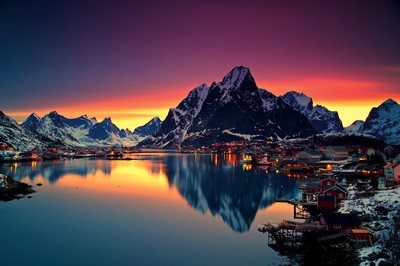
The issue of granting the right of permanent residence is considered within 9 months from the date of filing the application, but the terms of consideration change all the time.
What to do in case of refusal?
If the applicant does not agree with the decision, he can appeal it within 3 weeks of receipt. To do this, you need to state the reasons for disagreement in writing and send it to the police or the Norwegian Immigration Service
Resident card
Despite the fact that not all applicants receive a positive response, the migration authorities consider each application in detail.
Status privileges
A migrant who has received residence permit status can:
- study for free at any government institution in the kingdom;
- start your own business or get a job;
- travel to Schengen countries without a visa.

Categories of persons who are entitled to receive
The status can be obtained by:
- relatives or spouses of Norwegian subjects;
- refugees;
- students;
- AuPair program participants.
Conditions
To obtain a residence permit, you need to provide documentary reasons for obtaining the status. For example, a migrant worker presents a contract with a Norwegian employer. Documentation is reviewed within 10 working days.
Where to contact
You can obtain a residence permit in your home country by submitting documents to the Norwegian embassy. Foreigners staying in the kingdom must go to the police station at their place of residence.
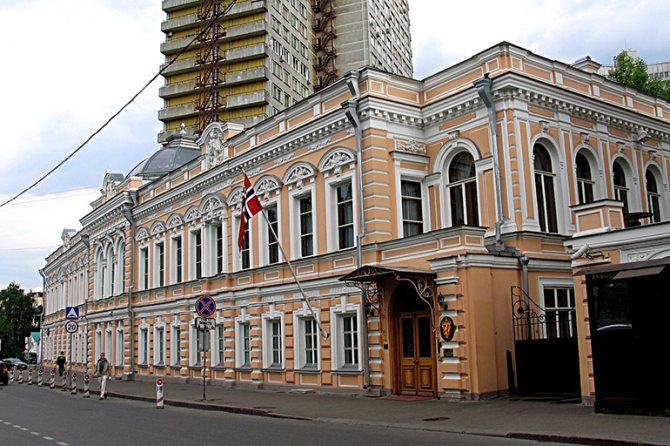
For a residence permit you need to apply to the Norwegian embassy.
Features of obtaining a permit
When processing documents through the embassy, the applicant must make an appointment in advance. The same rule applies when filing a petition through the police station. There, the immigrant is fingerprinted and photographed to obtain an identification card, which will be sent to the owner by mail.
Expenses
The cost of registration depends on the category to which the foreigner belongs. The student pays 3.2 thousand crowns (314 euros). Those planning to open their own business in the kingdom contribute 5.9 thousand crowns (580 euros).
Possibility of extending residence permit
You can extend your residence permit 1-2 years after receipt if there are grounds. For example, a university student must document that he is not excluded.
Ways to immigrate to Norway
Good living conditions attract a huge number of immigrants to Norway and in order to filter potential future citizens, the state has tightened measures for immigrants. Today there are several reasons for moving to the country of the fjords.
Starting a business
Owning your own business in Norway is a good way to move here and get permanent residence a few years later. Registering your own business allows a foreigner to obtain a residence permit. A prerequisite is that the minimum capital amount must be at least 13,000 euros. In this case, you will have to hire a Norwegian to be the manager of the company, since laws prohibit a foreigner from managing a company, even his own.
Employment
You can obtain a residence permit for employment under the following conditions:
- To search for a vacant position.
- Contract with the employer.
- A unique and in-demand specialty in Norway.
In the first case, a residence permit is issued for 1 year without the right of extension; in other cases, this status can be extended.
To immigrate for employment, you must provide: a work contract, a completed application form and a current account opened in a Norwegian bank.
Getting an education
In order to become a student at a Norwegian university, you must pass a competition and know at least English. As a basis for obtaining a residence permit, you must provide a contract with an educational institution. Norwegian can be learned through study. Students are issued a residence permit for the entire period of study, but this status does not allow them to apply for permanent residence.
Starting a family
You can obtain permanent residence three years after marriage to a Norwegian citizen. The main condition is that the marriage should not be fictitious, otherwise expect constant checks. For Norway, church and state are on the same level, so if you choose a wedding instead of official registration, for the state you will still be a family.
Family restoration is also the basis for obtaining this status. To do this, you must have close relatives who are Norwegian citizens and are ready to vouch for you with documents.
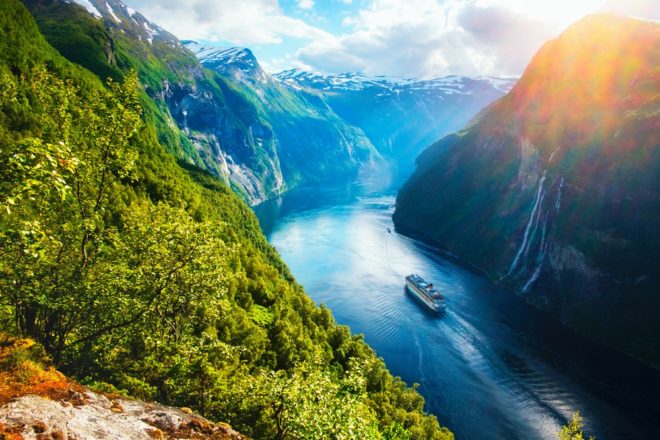
Refugee
To obtain protection from Norway, you must prove that you have actually been persecuted or oppressed in your country. Before a decision is made on assigning status, each candidate is checked very carefully. During the verification process, the candidate must live in a special settlement, and after the decision is made, the refugee is assigned social benefits.
Nuances of obtaining citizenship
It is not necessary to obtain citizenship to legally reside in the country. If he has citizenship, the immigrant can participate in the political life of the kingdom. However, citizenship does not provide any other benefits.
Contenders
The following may apply for status:
- Former subjects of the kingdom. At the time of submitting the application, the applicant must have resided in the country for at least 2 years.
- Spouses of citizens of the country after 4 years of marriage.
- Other categories. All other applicants must have lived in the state for at least 7 years. Persons under 18 years of age can be naturalized after 2 years.

Spouses of citizens of the country can apply for status.
The necessary conditions
The main condition for obtaining citizenship is knowledge of Norwegian. You must provide a certificate of attendance at language courses lasting at least 300 hours. This requirement does not apply to former subjects of the kingdom.
The applicant must not have a criminal record for committing serious or especially serious crimes. If the applicant has been convicted of petty theft and hooliganism, the applicant for citizenship will have a deadline within which he must prove his trustworthiness.
List of documents
The package of documents includes:
- Passports (foreign and civil).
- Certificate of payment of state duty.
- Birth certificate.
- Health certificate. The applicant must prove that he does not suffer from diseases dangerous to others.
- Documents confirming the applicant's solvency (for example, a bank statement).
- Certificate of no criminal record.
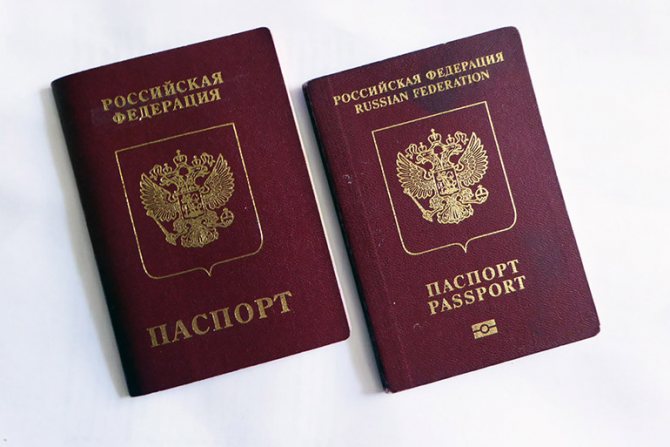
The package of documents includes passports.
Additional documents are also required, such as a marriage certificate (divorce, adoption, etc.).
detailed instructions
First you need to fill out an application on the website of the Directorate for Foreigners. The applicant will then be asked to submit documents. The package can be handed over to your local police station or to the Norwegian Immigration Office. Minor children who are not subjects of the kingdom are also indicated in the petition.
The authorities will notify the applicant of the time frame for reviewing his application. In most cases, the procedure takes no more than 6 months. At the next stage, the applicant is invited to an interview, after which a final decision will be made.
While the application is being considered, the migrant must not leave the country. If the decision to grant citizenship is positive, the applicant will receive a certificate signed by the king. The presentation of the passport is carried out in a solemn atmosphere. The new citizen must swear allegiance to the people and the kingdom. After receiving citizenship, male immigrants become liable for military service.
How to go to live in Norway?
Watch the video where the blogger talks about the possibilities of moving to Norway:
Emigration to Norway from Russia is a rather complicated procedure. The state border is carefully controlled by the authorities, and immigration requirements for foreign citizens are becoming more stringent every year.
There are only four ways to immigrate:
- reunification with family members;
- marriage;
- education;
- employment.
We will examine in more detail what documentary evidence is necessary for the emigration of Russian citizens to Norway.
Family reunion
Immigration to Norway in this way implies close family ties, in the presence of which, relocation is possible subject to the following conditions:
- Children of Norwegian citizens. At the same time, the child must be under 18 years of age and not married. The parents of a child applying for immigration are also subject to a number of conditions:
- both parents must officially reside on the peninsula;
- one parent must have the right to reside in Norway (in the absence of the other parent);
- If one parent is the official resident, the other must give permission for the child to move to the country.
- Persons over 18 years of age but under 21 years of age (unmarried). This refers to foreigners who in the past officially resided on the peninsula.
- Persons over 18 years of age (unmarried). Provided that family members of these citizens live on the peninsula and have a residence permit. A person moving for permanent residence must document his intention to live with his family, or provide a medical certificate indicating the need to live together with his parents.
- Orphans under 18 years of age. The orphan's brother or sister must live in Norway and there must be no guardians living in other countries.
- Adopted children under 18 years of age. The adoption of a child must be documented.
- Single foreigners over 60 years of age in the absence of a spouse, children and grandchildren living in other countries. The son or daughter of a single foreigner must officially reside on the peninsula.
- Foreigners, at birth one of whose parents had Norwegian citizenship.
The picture shows a certificate confirming the fact of adoption:

To immigrate to Norway under these circumstances, you must provide:
- passport of a citizen of the Russian Federation;
- international passport (with a copy of all pages);
- photo 3x4 – 1 pc.;
- questionnaire;
- birth certificate;
- consent to reside in Norway (for children under 18 years of age, one of whose parents is going to get married on the territory of the peninsula);
- death certificate (as confirmation of the absence of close relatives);
- certificate of residence (for single citizens).
The consular fee for obtaining an immigration permit is 35 euros. There is no consular fee for persons under 18 years of age.
Citizens residing in Norway and being the host party, in addition to an identity card, must provide:
- a document confirming the availability of real estate;
- information about income for 1 year;
- salary statement for the last 3 months;
- documentary evidence of the fact that there is no need to receive social benefits for 1 year.
How to move to Norway based on cohabitation or marriage?
Immigration in this case is possible if:
- the spouse is a Norwegian citizen (at least 18 years of age);
- cohabitant (partner) lives on the peninsula;
- the bride and groom plan to get married on the peninsula (both must be over 18 years of age);
- both spouses are Norwegian.
The minimum duration of a civil marriage must be 2 years. If the partner is pregnant, the period of cohabitation does not matter. At the same time, neither partner must be legally married. The fact of further cohabitation in the country is a prerequisite.
To immigrate to Norway on the specified grounds, you must provide the following to the Norwegian diplomatic mission:
- passport of a citizen of the Russian Federation;
- international passport (copies of all pages);
- questionnaire;
- photo 3x4;
- a document from the registry office confirming the absence of a legal marriage;
- stamp in the international passport from the OVIR;
- resident card;
- certificates of divorce from previous marriages.
See what a certificate from the registry office about the absence of marriage ties looks like:

The receiving party must provide a document confirming the absence of marital obligations.
Copies of documents are certified by a notary. Translation of document records during immigration is carried out by an officially registered translator.
Troubleshooting in case of failure
Citizenship may be denied in the following cases:
- Lack of necessary documents.
- Insufficient material support.
- Criminal history in your home country. The exception is for people who have been unlawfully persecuted by the authorities.
- Lack of grounds for granting citizenship.
- Frequent and deliberate violations of Norwegian law. Persons suspected of terrorist activities or espionage in the kingdom or abroad may be refused.

A refusal can be obtained if there is insufficient material support.
A rejected applicant is given 2 weeks to file an appeal, which must be submitted to the immigration service. If this measure turns out to be ineffective, the court should be contacted. Foreigners are recommended to use the services of a translator and legal offices.
A Kazakh man who left to work in Norway got into trouble March 6, 2021, 04:56
A 45-year-old Kazakh man who went to work in Norway got into trouble, writes Express-K.
A man (his real name has not been revealed) read an advertisement that construction workers were needed in a wealthy Scandinavian country. They promised a salary of two thousand euros per month.
The candidate contacted the representative of the employer in our republic - the company’s office is located in the center of Almaty. I paid three thousand euros for processing all the necessary documents.
The employer issued a Schengen visa for a period of one year through the Estonian embassy and purchased a ticket to the Lithuanian capital. In Vilnius, our compatriot met with a representative of the employer, who escorted him on a plane to Oslo. The Kazakhstani purchased the ticket for 90 euros at his own expense.
On December 11, 2021, the man arrived in Oslo and got a job at a construction site in the town of Sorumsand near the Norwegian capital. After working for more than a month, he still did not receive the promised salary. Then the builder contacted the employer and also contacted the office of the company that prepared the documents for him. They promised to resolve the situation soon, but our compatriot never received help.
Instead, the man ended up in a police station, where he was accused of violating Norwegian laws and was given a deportation verdict. The Kazakhstani spent several nights in a temporary detention center in Oslo, and then was sent to the transit zone of the airport in the Norwegian capital, from where he flew to Almaty a couple of days later.
Representatives of the Norwegian police notified the Kazakh embassy about the detainee, but refused to organize a meeting with him, providing only the opportunity to talk by phone.
“The police called us and informed us about our compatriot at the end of the working day,” Ilyas Omarov, Charge d’Affaires of Kazakhstan in Norway, commented on the situation.
According to the diplomat, the next day the police did not get in touch, then the weekend came and no one answered the phone. “We were simply presented with a fact. Unfortunately, we have to admit that our citizens sometimes do not register with temporary consulates upon arrival in another country. Accordingly, we cannot provide them with basic legal assistance in the host country. As a result, we will learn about their existence and, accordingly, the problems that have arisen, when it is already difficult to change anything,” Omarov concluded.
As a result, the publication notes, the Kazakh citizen was banned from entering the countries of the Schengen zone for three years, he suffered losses and did not earn a single crown in Norway.
Immigrant control
Due to the increasing flow of migrants, Norwegian authorities are planning to tighten border controls. A fence will be erected on the border with the Russian Federation to prevent illegal immigrants from entering the territory of the kingdom. However, this precaution will not create difficulties for crossing the border legally.
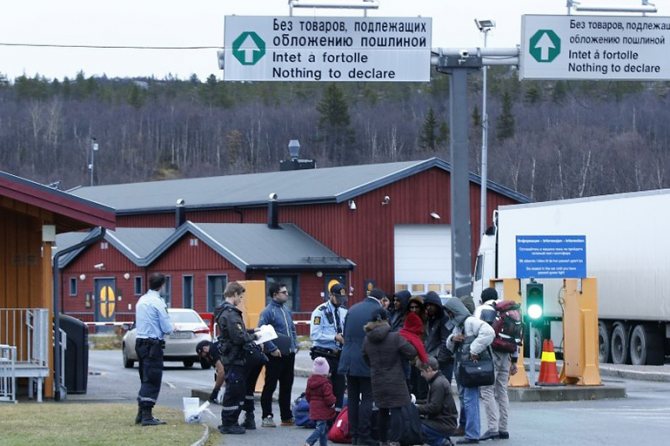
The authorities want to tighten border controls.
You should not try to immigrate to Norway illegally. A foreigner who does not have the right to reside in the country will be forced to pay a fine of 3 thousand crowns. If there are aggravating circumstances, such as illegal employment, penalties will increase to 7.5 thousand crowns. A foreign citizen will be prohibited from entering not only Norway, but also other Schengen countries.
How to get to Norway as a refugee?
The prospect of no significant financial costs, the provision of social benefits and the absence of requirements for knowledge of the Norwegian language were powerful arguments for refugees who chose Norway as a political asylum.
Watch the report on Syrian refugees in Norway:
Living conditions for refugees in Norway
The advantages of refugees living in the country are determined by the following indicators:
- right to employment;
- free Norwegian language training;
- providing separate housing for each married couple;
- free access to sports sections;
- free food (or allocation of funds for the purchase of food);
- provision of preschool children's institutions;
- free treatment;
- payment of old age and disability benefits;
- providing subsidies for rental housing;
- the possibility of obtaining Norwegian citizenship after 7 years;
- If you wish to return to your homeland, all material costs associated with the move are paid from the Norwegian budget.
Grounds for obtaining refugee status
There are certain circumstances under which a person may qualify for refugee status:
- persecution at home for political reasons;
- religious and racial discrimination;
- restriction of rights based on gender;
- genocide;
- military operations;
- health condition that does not allow you to stay in your home country.
Procedure for obtaining refugee status
There are several ways to obtain refugee status within the Scandinavian Peninsula:
- When trying to cross the border.
- When contacting the police department.
In both cases, a representative of the Norwegian authorities will accompany the foreigner to the refugee camp. Next, the citizen’s passport and application for recognition of refugee status are submitted to the authorities for consideration to make an appropriate decision.
An applicant for status is asked to undergo a fingerprinting procedure and an interview to determine the merits of choosing Norway as a refuge. A medical examination is also included in the list of mandatory activities before a decision is made to grant refugee status.
During the consideration of the application for asylum, the foreigner is issued a passport with a validity period of 2 months. If the decision is positive, the refugee is issued an immigrant passport, and is also paid an allowance for housing and personal needs.
Tips and recommendations for those who decide to leave Russia for Norway
A Russian who decides to immigrate to Norway must apply for a category D visa. Based on this document, he will receive the right to cross the border. Then you need to apply for a residence permit. Russian citizens should not try to immigrate through obtaining refugee status. The Kingdom does not classify the Russian Federation as a dangerous country for living.
After moving, you must attend Norwegian courses. It is advisable to immediately start communicating with the local population in order to get acquainted with the traditions and way of life. Norwegians are considered a friendly nation, easy to get along with. Immigrants are encouraged to adopt the same healthy lifestyle as locals.
Foreigners earning a small salary should shop in Sweden. This is what the Norwegians do, living on the border with the neighboring kingdom.
Options for obtaining residence permit and permanent residence
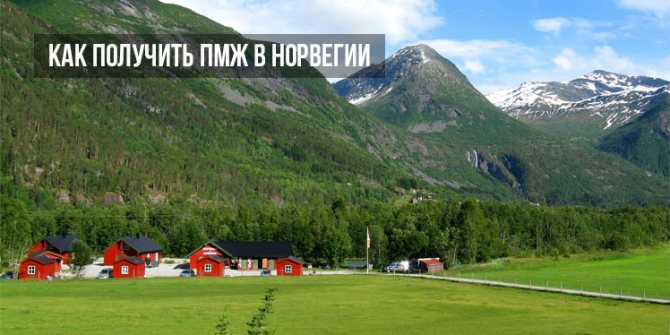
Obtaining a residence permit in the country is possible through:
- Investing and starting a business
- Employment
- Getting higher education
Permanent residence is difficult to obtain. This is possible after 7 years of residence permit status. Options with a fictitious marriage should not be considered, since you will have to live in the country for 5 years before permanent residence.
Negative aspects of life in the country
A potential immigrant needs to be prepared for the negative aspects of life in the kingdom, including:
- Mentality of the local population. Even in large cities, people lead a relaxed lifestyle. Norwegians are not in a hurry. Residents of the country are characterized by slowness, which irritates foreigners. Despite their friendliness, Norwegians are reserved and reserved. Asking a stranger about your personal life or telling him about your problems is considered unacceptable.
- Difficulties in finding a job. A foreigner will be forced to compete not only with the local population, but also with immigrants from other countries.
- Harsh climate. Not all migrants undergo adaptation. The climatic conditions of Norway are more suitable for residents of the northern regions.
The main disadvantage of living in the kingdom is considered to be high prices for essential goods, which are 1.5-2 times cheaper in other European countries.
Details about obtaining citizenship
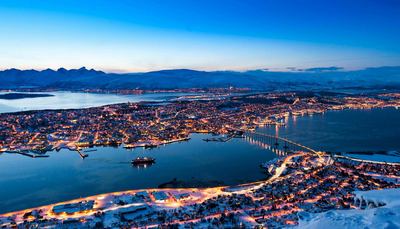
Emigration to the kingdom is not an easy process; Norway is interested in migrants who contribute to the development and prosperity of the country.
However, it severely limits those whose only incentive is the desire to take advantage of the bonuses of living in a highly developed state. Accordingly, the laws of the country are aimed at ensuring that migrants do not feel discrimination, but at the same time they are useful to society and comply with existing customs.
In the first instance, all issues with migrants are resolved by the Directorate for Foreigners.
The provisions governing migration issues in Norway are set out in the main legal acts:
- Law on Foreigners, issued on June 24, 1988
- Law on Citizenship of 01.09.2006
- Law on Integration of July 4, 2003
- Regulations on obtaining Norwegian citizenship dated 01.09.2006.
Obtaining citizenship of the kingdom can be divided into several stages:
- obtaining a residence permit
- obtaining permanent residence: after three years of residence in the country, a foreigner can apply for permanent residence
- obtaining citizenship: after 7 years of permanent residence it is possible to obtain a passport
ATTENTION! Citizens of the Russian Federation who wish to become subjects of the kingdom must renounce Russian citizenship.
If there is no desire to give up Russian citizenship, we suggest considering the possibility of emigrating to Belgium, where dual citizenship is available.
